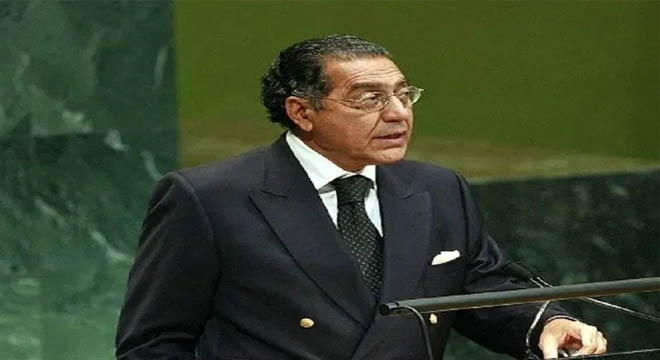UNITED NATIONS, : Pakistan has reaffirmed its opposition to adding new permanent members in an enlarged UN Security Council, saying that one of the aspirants — India — does not even qualify for a seat on the 15-member body, citing New Delhi’s violations of its resolutions on Kashmir.
Without naming India, which along with three other countries — Brazil, Germany and Japan (known as G-4) — has been campaigning for permanent membership of the Council, Ambassador Munir Akram told the U.N. General Assembly on Monday that the South Asian country has waged 20 wars since independence and fomented terrorism and instability across the region, especially against Pakistan.
“We have clear and ample evidence of this state sponsored terrorism,” the Pakistani envoy told the 193-member Assembly which is debating the Security Council reform aimed at making it more representative, responsive, democratic and transparent — but the progress remains stalled.
“It (India) stands in violation of the UN Security Council resolutions calling for the final disposal of the disputed State of the Jammu and Kashmir through the exercise of self-determination by the people of the State in a free and fair plebiscite under UN auspices,” Ambassador Akram said, adding that it had deployed 900,000 troops to crush the Kashmiri people’s legitimate freedom struggle and committing massive human rights violations.
In addition, settlers from outside Jammu and Kashmir were being brought in to transform the Muslim majority State into a Hindu majority territory, he said.
“It threatens aggression against Pakistan and resorts to daily artillery and small arms fire targeting innocent civilians on our side of the Line of Control in Jammu and Kashmir.
“This country has no qualification for membership of the Security Council — permanent or even non-permanent,” the Pakistani envoy added.
Full-scale negotiations to reform the Security Council began in the General Assembly in February 2009 on five key areas — the categories of membership, the question of veto, regional representation, size of an enlarged Security Council, and working methods of the council and its relationship with the General Assembly.
Despite a general agreement on enlarging the Council, as part of the UN reform process, member states remain sharply divided over the details.
The G-4 countries have shown no flexibility in their campaign to expand the Security Council by 10 seats, with 6 additional permanent and four non-permanent members.
On the other hand, the Italy/Pakistan-led Uniting for Consensus (UfC) group firmly opposes any additional permanent members, saying that such a move will not make the Security Council more effective and also undermine the fundamental principle of democracy that is based on periodic elections.
The Security Council is currently composed of five permanent members — Britain, China, France, Russia and the United States — and 10 non-permanent members.
In his remarks, Ambassador Akram said UfC’s proposal reflects the most suitable basis for an agreement on comprehensive reform, saying it was fair and equitable that respects the principle of sovereign equality of states and does not discriminate between them.
“If it is approved, it will obtain the largest possible support in the General Assembly and the essential ratification of all the 5 permanent members of the Security Council. ”
The UfC proposal, he said, was also flexible and through variable arrangements, accommodate the aspirations and interests of the majority of the UN membership, including African and other regional groups such as the Arab Group and the OIC.
The UfC, he pointed out, looks at Africa’s collective desire for representation differently; its absence is a historical injustice. Africa is seeking a larger number of non-permanent and two empowered permanent seats for the continent.
“The UfC is prepared to explore with the African Group how their regional approach could be adapted to enable all regions to be able to select their own candidates for membership in an expanded Security Council.”
Ambassador Akram said, “The reform of the Security Council must be part of a broader revival of the multilateral system as it was conceived under the Charter.
“At the same time, the balance between the Council and the General Assembly, the Economic and Social Council (ECOSOC) and other UN organs must be restored to reinvigorate the entire multilateral system.”
Follow the PNI Facebook page for the latest news and updates.









